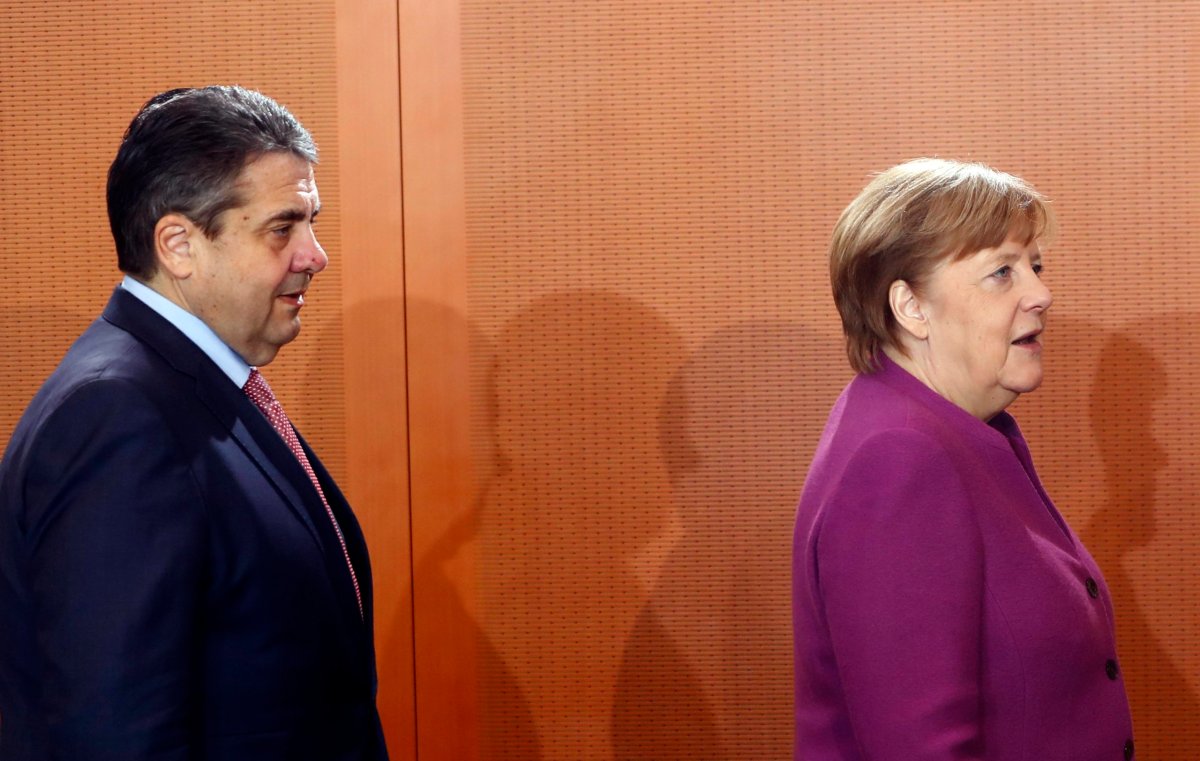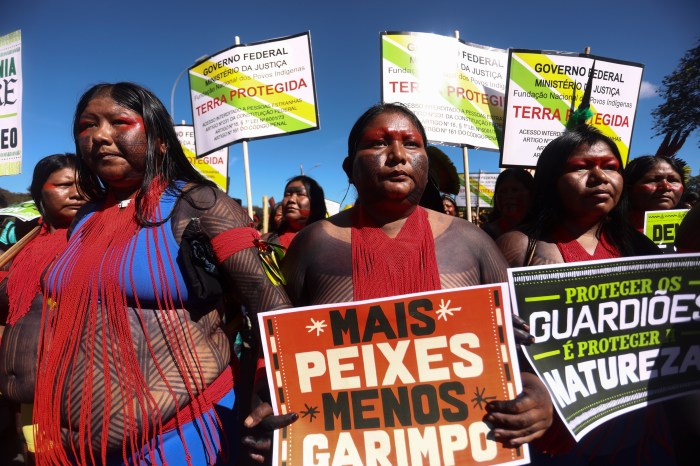BERLIN (Reuters) – Germany’s Sigmar Gabriel, foreign minister for the last year, confirmed on Thursday that he would not be a member of Chancellor Angela Merkel’s new government.
Merkel’s conservatives and the Social Democrats (SPD) agreed in their coalition talks that the SPD will retain control of the Foreign Ministry and the party has said it will announce who the minister will be on Friday.
The frontrunners are Heiko Maas, 51, justice minister in the last ‘grand coalition’, and Katarina Barley, 49, who has been family minister since 2017 with a strong interest in European affairs and whose father is British.
Maas brought in new laws forcing social media companies like Facebook and Twitter to remove hate speech from their sites and is a vocal critic of the far-right Alternative for Germany (AfD).
Gabriel, a former leader of the SPD, said the party’s new leaders, Olaf Scholz and Andrea Nahles, had told him he would not be part of the government due to be sworn in next week.
The move is no surprise, partly because he is known to have a tense relationship with Nahles.
Tensions between the two spiked last month when Gabriel complained publicly that he learned from the media that Martin Schulz, the party’s previous leader, would take over as foreign minister. Schulz subsequently withdrew from the post and the leadership role.
In his statement on Thursday, Gabriel struck a more gracious tone, saying it had been a “big honor for which I am deeply grateful” to serve his party and his country.
“It was an exciting and eventful time which opened up big opportunities and experiences that went way beyond what I would dared to dream of as a younger person,” he said on Facebook.
Before taking over the Foreign Ministry, he had been economy minister where he oversaw renewable energy reforms.
Respected by some for plain speaking and taking a clear stance with countries including Saudi Arabia and Turkey, he was also widely seen as something of a loose cannon. He is know for changing his mind on issues, such as on migrant policy and on phasing out coal.
Visiting Israel last year, he met a group critical of Israel’s treatment of Palestinians which prompted Prime Minister Benjamin Netanyahu to cancel talks with him.
As economy minister he was snubbed by the speaker of the Iranian parliament Ali Larijani on a trip to Tehran in 2016 to drum up business after he urged Tehran to pursue reforms and act responsibly in Syria.
(Reporting by Madeline Chambers; Editing by Andrea Shalal and Janet Lawrence)



















